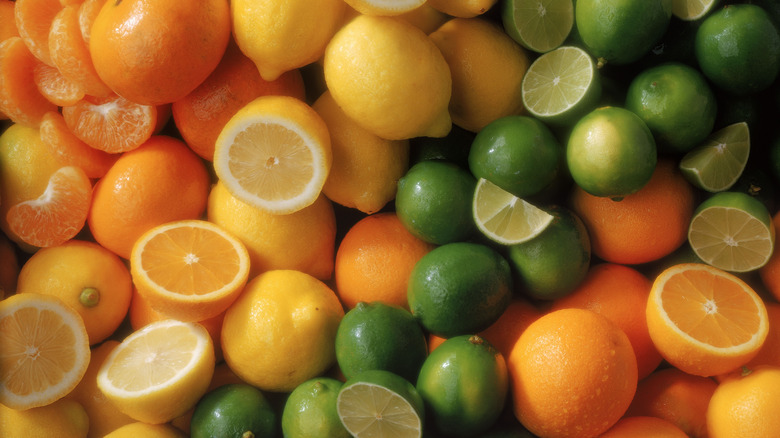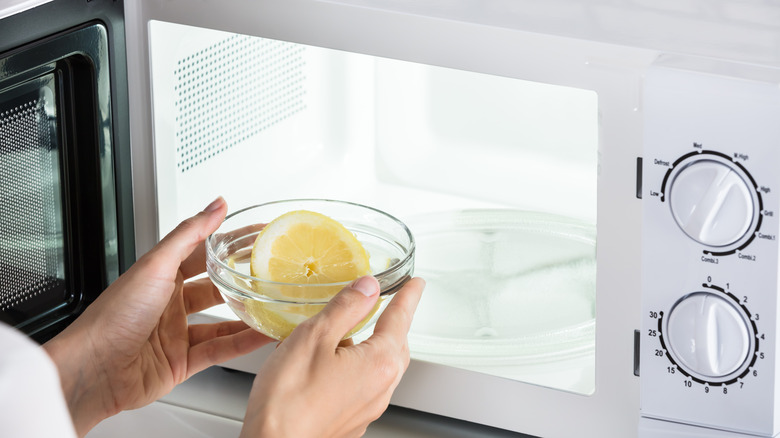For The Most Flavorful Cocktails, Microwave Your Citrus Before Juicing
It's common knowledge that citrus fruits, such as oranges, lemons, and limes, are a good source of vitamins and minerals (per WebMD). And more specifically, citrus is high in vitamin C, which is an antioxidant that can help boost the immune system and protect against cell damage. Citrus fruits also contain flavonoids, per the National Library of Medicine, which are plant compounds found in all kinds of fruits, vegetables, roots, flowers, and tea. These compounds have anti-inflammatory and anticancer properties, so they are used in many pharmaceutical and cosmetic products.
Another great thing about citrus fruits? They taste incredible! They can be eaten as is, and they add well to other foods to make unique dishes, like lemon basil pesto, or they can be added to smoothies and cocktails to kick the beverages up a notch. If you want to add citrus fruits to your rotation, learning how to get the most juice from them is important.
Keeping citrus fruit good for use
Who wouldn't want to extend the freshness of citrus fruits? When you keep citrus fruits on your counter top and they will last about a week, per Stop Food Waste, but if you want to prolong the shelf life of your lemons and limes, you can also keep them in a bag in the refrigerator, where they will last about a month. If you cut or peel the fruit, you will need to refrigerate it to keep it fresh, but cut fruit won't last very long. Per Foodal, peeled citrus fruit, stored in a bag or container, will last about a week in the fridge because the skin of the fruit, which provides a barrier for its flesh, is gone.
Unfortunately, you won't get juice from cold citrus fruits as easily as warm fruits, according to Serious Eats, because the vesicles that contain the juice in the fruit are made of complex carbohydrates, which are stronger in colder temperatures to help protect the fruit. This makes it harder to get juice from the produce. So if you plan to use it for a recipe or a cocktail, like a red sangria, you will want to warm it up.
Warming citrus fruit for the best cocktails
When it comes to warming citrus fruits, the microwave comes in handy. Yes, you can microwave cold citrus fruits. According to Woman's Day, you should only nuke the fruit for 15 or 20 seconds, still in the peel, just before you plan on juicing it. The fruit needs to be barely warm, not hot, because if it gets too hot some of the juice could evaporate or the peel can dry out. If you get the fruit where it's just warm, it will release more juice than it would if you tried squeezing while it's cold or even at room temperature.
Once you have the juice, you can add it to whatever recipes you want, but you should let the juice rest a bit, first. That gives it time for the acidity to mellow out, giving you a better flavor, according to Cocktail Society. If you enjoy making cocktails at home or frequently entertain, this technique can save you time and energy. After all, lemon juice is a key ingredient in many popular cocktails like the lemon drop martini and the whiskey sour, and lime juice goes in the cosmo.
As for storing your citrus juice, you can leave the juice out on the counter, in a covered container, for a few hours, or you can store it in the fridge for up to four days, per Does It Go Bad.


